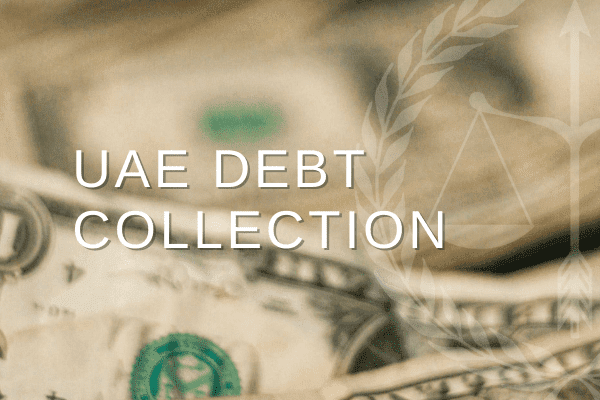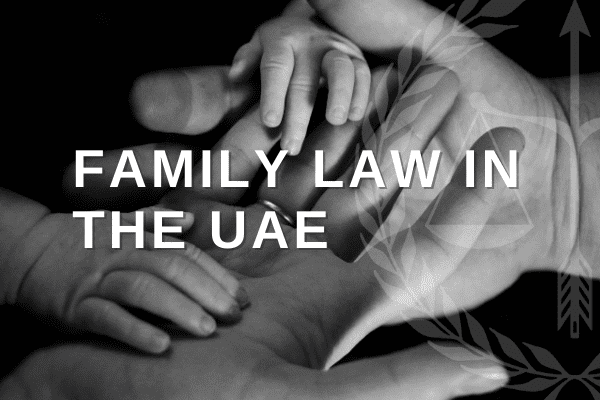Artificial Intelligence (AI) | Financial Technology (FinTech) – An Advantage In Business

FinTech in the United Arab Emirates
Technology has made tremendous strides in recent years, particularly with the advent of “artificial intelligence” (AI), which enabled machines to mimic and outperform human abilities. As a result, there has been a notable rise in the use of technology in the services that companies offer to their clients. Any and all technologies that automate financial trading for the advantage of companies and customers are referred to as “Fintech” or “financial technology” and aim to displace more conventional forms of finance. It encompasses everything, from a straightforward smartphone app used for online payments to anything complicated, like blockchain technology, where all transactions are completely protected. This technology makes judgments automatically using robotic process automation (RPA) and algorithms. artificial intelligence and other scientific technology such as artificial intelligence (AI) and machine learning (ML), which use iterative processing and allow the software to learn from repeated patterns in the data, is used to arrive at a decision. This would include online trading platforms, robo-advisers, crowdfunding platforms, online banking of any kind, cryptocurrency, and insurance advice using technology.
What Does FinTech Offer In The UAE?
With the launch of “Fin Tech Strategy 2021” in 2016 and the UAE Vision 2022, which aims to transform the country into a leader in fintech, more than 134 fintech companies are offering their services in the UAE right now.
BNPL (Buy Now, Pay Later)
Founded by Tariq Sheikh and Dani Molina, BNPL, or buy now and pay later, has become the latest retail trend amongst the millennial and Gen Z generations. Customers can use this service to buy items online and pay for them in equal installments later. In some cases, the website allows the customers to simply checkout and pay later, and in other cases, the customer has to pay a certain amount before checking out. This makes payment easy, as it allows the customers to split their bills and pay in installments with zero interest. As of now, there are no clear guidelines for the regulation of BNPL in Dubai. But since it is a sort of credit, it can be assumed that it is covered under the existing credit laws.
Digital Wallets (E-Wallets)
It is a contactless mobile payment, representing a shift from the traditional use of credit cards and debit cards at the time of payment. The details of the customer are stored in the e-wallet, so one does not need to physically carry any cards with them. This is also a safe option since it cannot be lost or stolen by chance. Since COVID 19 acted as a catalyst for contactless payment, more than half of Dubai residents now use e-wallets.
Crowdfunding
It is an alternative finance method that allows a person to fund a project and raise small amounts of capital from a large group of people through an online licensed platform. This is the best option for small and medium businesses, which are in dire need of funds in order to support their ideas and innovations and help them grow into businesses. This is legal now in the UAE, as the UAE Cabinet, in March 2022, approved private and public funding to finance new projects. DubaiNEXT, for example, is a government-backed digital crowdfunding platform that provides innovators with a platform to raise money, and the campaigner in this case will get full ownership of his project.
Cryptocurrency
Crypto is a digital currency in encrypted form created using encryption algorithms that is monitored and organized by a peer-to-peer network called the blockchain, which acts like a ledger of transactions. Unlike the normal currency, which is controlled by a central bank, cryptographic trading usually remains anonymous and is not regulated by any monetary authority. Bitcoin remains one of the most popular cryptocurrencies, for which the blockchain technology was basically created. The UAE Central Bank does not recognize cryptocurrency as legal tender, but it is not illegal in the UAE. For the purpose of regulation and licensing in the Emirate, Law No. 4 on Regulation of Virtual Assets (VAL), also known as the Virtual Assets Law, was passed.
Blockchain Technology
Blockchain is a shared real-time ledger for recording the history of transactions, contracts, and physical assets. It is not one person but a chain, and everyone in the chain can see the details of each record, known as the block. And every block is encrypted and stamped; only the person who owns it can edit it. Owners gain access to their block through a private key that only they possess. If changes are made in one block, everyone’s blockchain is updated and synced in real time. Transactions processed over the blockchain can be done within seconds. It can also protect copyrights and royalties and people’s digital identities. The government of the UAE has adopted blockchain technology for conducting its transactions. Up to 50% of the government transactions so far are done by this method. For this purpose, the UAE Blockchain Strategy 2021 has been adopted by the government.
Metaverse
Metaverse became a household name after Facebook changed its name to “Meta” in October 2021. It is a virtual reality space where users can interact with a computer-based environment from the comfort of their homes in the physical world. People in the metaverse use avatars to represent themselves and communicate. It is often said that the metaverse has made human life immortal. The Dubai Metaverse Strategy aims to turn Dubai into one of the top metaverse economies in the world. For this purpose, it seeks to enhance the metaverse’s economic contributions, promote advanced ecosystems, and provide support for metaverse education. The main focus of the Dubai metaverse is on four sectors: tourism, education, government services, a virtual reality space where users can interact with a computer-based environment from the comfort of their homes in the physical world. People in the metaverse use avatars to represent themselves and communicate. It is often said that the metaverse has made human life immortal. The Dubai Metaverse Strategy aims to turn Dubai into one of the top metaverse economies in the world. For this purpose, it seeks to enhance the metaverse’s economic contributions, promote advanced ecosystems, and provide support for metaverse education. The main focus of the Dubai metaverse is on four sectors: tourism, education, government services, retail, and real estate. One of the recent examples is the Etisalat store in the Dubai Mall, where the customers would be able to access the services while sitting at home and wouldn’t need to beat the traffic to get there. A virtual space that cannot be physically accessed yet attracts people to invest in it needs proper regulations. For this purpose, the Virtual Assets Regulatory Authority (VARA) has become the first regulator aiming to provide a framework for the financial entities operating within the metaverse.
Robo Advisers
Robo Advisers is an artificial intelligence-driven financial advisor who, by analyzing the profile of the client, delivers solutions and suggests changes and amendments to the existing profile. Robo advisers make investments simple yet affordable for clients. CBD Investr, a robo-advisor, has been set up by the Commercial Bank of Dubai. They enable investors to create globally diverse portfolios. This is certainly the future of wealth management.
Sandboxes
To encourage innovation, especially in the financial sector, the “sandbox” concept allows innovators to have pilot licenses to test their products under lenient regulatory requirements. The ADGM Reg Lab introduced by FSRA provides a controlled environment for fintech participation. The Central Bank of the UAE has deployed its regulatory sandbox as one of its initiatives in the insurance sector.
FinTech Hive at DIFC
The DIFC has provided FinTech companies with a platform to bring financial and technology firms together. Firms all over the world can test, develop, and adapt their products and solutions to meet the financial and technological needs of their respective regions. It conducted its first inaugural accelerator program in 2017, and ever since then, two more successful events have taken place.
How is this fintech regulated in the UAE?
When you have a technology tsunami all over the place, it is pertinent to have checks in place to regulate and provide a proper framework within which the system must offer services to its potential customers and make it safer for the customers who are otherwise going to be the victims of such fraud and scams if it remains unregulated.
UAE Onshore
Fintech and its services are regulated by the Central Bank of the UAE with respect to banking, finance, and payment services. The Securities and Commodities Authority (SCA) regulates markets, listed companies, and securities brokers, while the Insurance Authority regulates insurance activities.
Large Value Payment System Regulation
In order to check high-priority funds transfers on behalf of the customers, the Central Bank Circular No. 9/2020 on the Large Value Payment System Regulation provides for a financial structure that supports the financial and wholesale activities. It covers the licensing requirement in relation to the LVPs. Also, it applies to those that operate in the UAE and LVPs that accept the settlement in AED both inside and outside the UAE. LVPs require a license from the Central Bank of the UAE and must comply with the Principles of Financial Market Infrastructure (PFMI).
Stored Value Facilities Regulation
Stored-Value Facilities are those where the customer pays in advance so that he can later use that payment method for any goods or services.The Stored Value Facilities Regulation was issued in September 2020, which replaced the regulatory framework for stored value and electronic payment systems and made the law more stringent.
Regulation of Security Tokens
The regulation provides for a regulatory framework for tokenization, listing, and trading of fund interests issued by a fund from the DIFC.
Regulation of cryptocurrency
For the purpose of regulating crypto currency, SCA Decision No. 23 of 2020 provides for Crypto Assets Activities Regulation (CAAR) to regulate and license key aspects of dealing in crypto assets. Two requirements have been provided for providing cryptographic services: First, the service provider must be incorporated onshore within the UAE or any of the UAE’s financial free zones. Second, he must be licensed by the SCA.
Electronic Payment Regulation 2017
This is issued by the Central Bank of the UAE and mandates that entities seeking to provide electronic payments obtain a license before dealing with payments. Two categories of payment service providers that must obtain the requisite license are those providing payment service providers (PSP) and payment system operators (PSO).
DIFC
The Dubai Financial Service Authority has not come up with any laws or regulations around crypto assets. However, the Financial Service Authority has come up with the Regulation of Digital Security Offerings and Crypto Assets 2019 to regulate cryptocurrencies.
Finally, FinTech services are making financial services more transparent, invisible, and extremely affordable. Fintech companies, however, must have a license and local presence so as to reach customers. So, this poses a serious challenge for those companies that wish to target UAE residents from outside of the UAE. Also, upgrades and evolution in the law are taking place at such a pace that companies will have to watch out for any developments and change their rules as per the new legislation.
Contact us to for more in-depth discussion about your legal concerns with Cryptocurrency.



